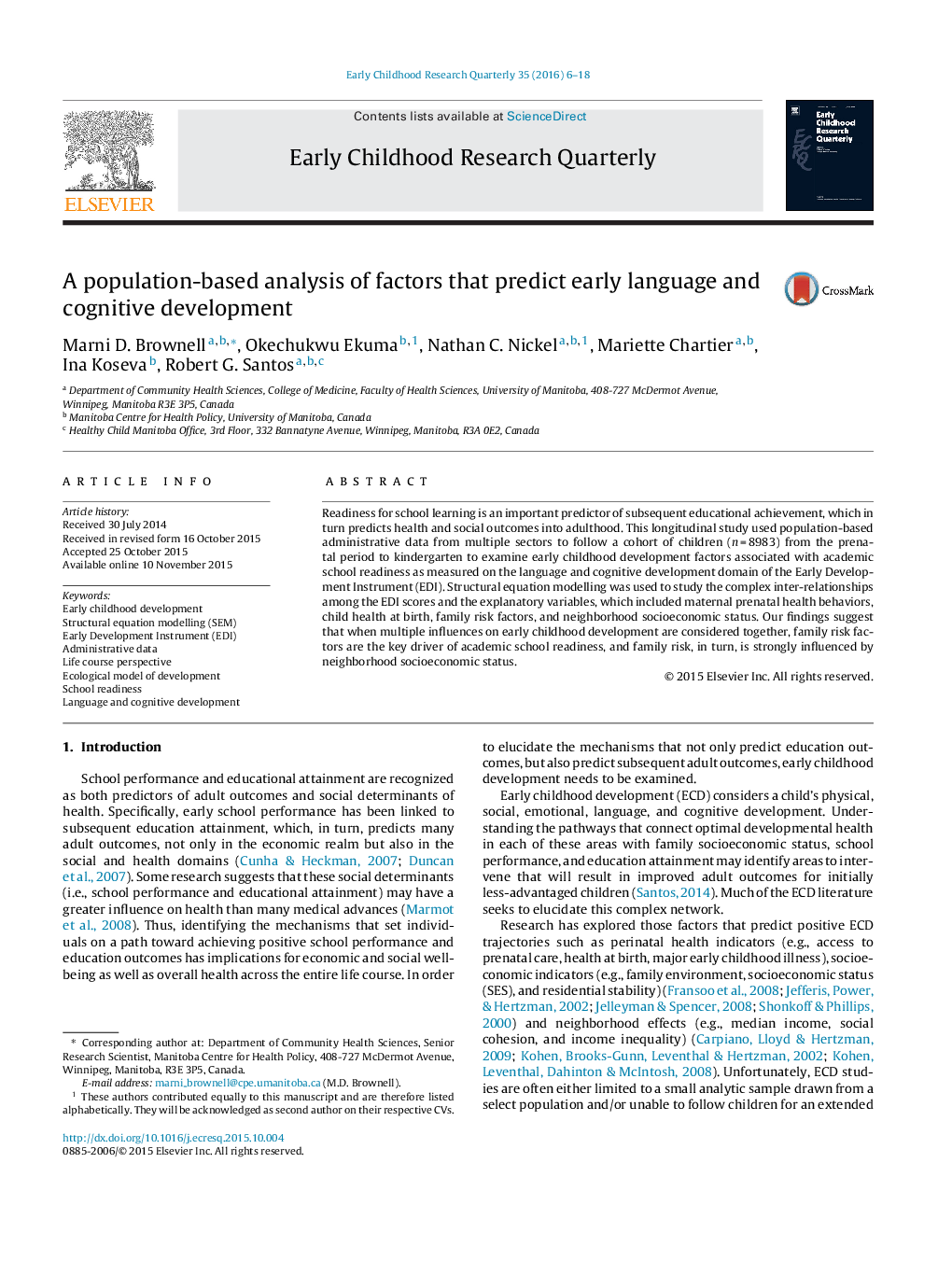| Article ID | Journal | Published Year | Pages | File Type |
|---|---|---|---|---|
| 6840725 | Early Childhood Research Quarterly | 2016 | 13 Pages |
Abstract
Readiness for school learning is an important predictor of subsequent educational achievement, which in turn predicts health and social outcomes into adulthood. This longitudinal study used population-based administrative data from multiple sectors to follow a cohort of children (n = 8983) from the prenatal period to kindergarten to examine early childhood development factors associated with academic school readiness as measured on the language and cognitive development domain of the Early Development Instrument (EDI). Structural equation modelling was used to study the complex inter-relationships among the EDI scores and the explanatory variables, which included maternal prenatal health behaviors, child health at birth, family risk factors, and neighborhood socioeconomic status. Our findings suggest that when multiple influences on early childhood development are considered together, family risk factors are the key driver of academic school readiness, and family risk, in turn, is strongly influenced by neighborhood socioeconomic status.
Keywords
Related Topics
Social Sciences and Humanities
Psychology
Applied Psychology
Authors
Marni D. Brownell, Okechukwu Ekuma, Nathan C. Nickel, Mariette Chartier, Ina Koseva, Robert G. Santos,
